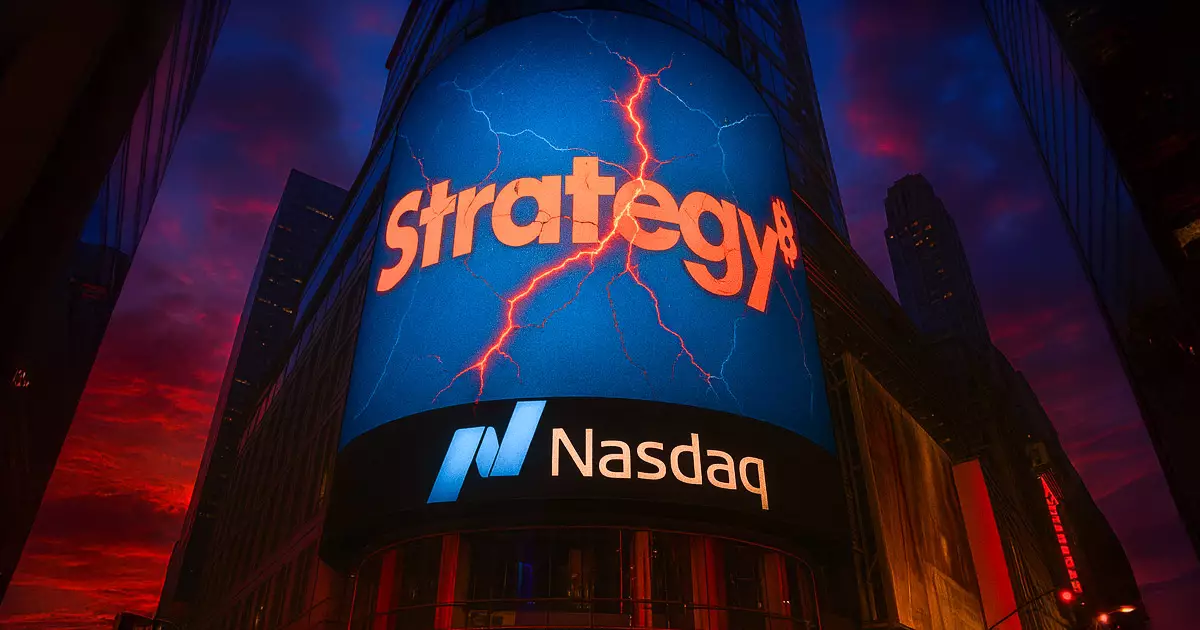In recent years, a new financial frontier has emerged within the public markets—corporate crypto treasuries. Many companies, especially those listed on Nasdaq, have aggressively adopted strategies that involve issuing equity or convertible debt to accumulate cryptocurrencies like Bitcoin, Ethereum, and Solana. This wave of asset buildup is fueled by a belief in digital assets’ potential not just as investments but as core components of corporate balance sheets. While innovative, this trend has outpaced existing regulatory frameworks, prompting Nasdaq to step in with a policy shift aimed at increasing oversight. This move is both a recognition of the explosive growth in crypto-related financings and a caution against unbridled risk-taking in financial markets.
Nasdaq’s decision to require shareholder approval for stock issuances related to crypto acquisitions exemplifies a broader effort to introduce checks and balances. The exchange’s existing Rule 5635 already mandates shareholder votes on significant capital changes, but this new emphasis specifically targets transactions that involve issuing shares to fund crypto purchases. The purpose is clear: prevent companies from bypassing investor scrutiny when engaging in what remains a highly volatile and uncertain asset class. Still, critics argue that this new requirement injects a layer of bureaucracy into a market often driven by innovation and fast-paced decision-making, risking stifling the entrepreneurial spirit that has propelled many firms into the crypto arena.
The fallout was immediate. Stock prices of firms actively involved in crypto treasury strategies experienced volatility, reflecting investor concern over potential delays and increased procedural complexity. For example, strategy shares dipped during the first reaction but later recovered some ground—an indication that markets are undecided about whether this move is a nail in the coffin or a necessary safeguard. Despite the short-term tremors, demand for exposure through pure crypto assets remains robust, suggesting that many investors and companies see this as a manageable hurdle rather than an insurmountable barrier.
The Evolving Regulatory Landscape and Its Impact
The changes at Nasdaq are not occurring in isolation. Concurrently, the Securities and Exchange Commission (SEC) has been signaling a more institutionalized treatment of digital assets through proposed rules and frameworks. These efforts seek to clarify how tokens are offered, sold, and traded, aiming to integrate digital assets into the traditional securities ecosystem more transparently. Meanwhile, legislative proposals in Congress aim to delineate jurisdiction between the SEC and the Commodity Futures Trading Commission (CFTC), further shaping the future environment for crypto issuance and custody.
This confluence of exchange-level oversight and federal regulation points toward a future where crypto activities are subject to rigorous scrutiny. For companies contemplating issuing new tokens, such as stablecoins or staking assets, the additional layers of approval and compliance are likely to slow deal cadence and elevate costs. Yet, from a center-right perspective, this represents a desirable stabilization step—curbing reckless practices, protecting investors, and ensuring that public companies do not become conduits for speculative bubble perpetuation.
Notably, Nasdaq’s new policy does not outright ban crypto treasuries but raises the threshold for shareholder approval, effectively requiring more transparency and investor involvement. This shift favors measured growth over reckless expansion, aligning well with a cautious but optimistic approach toward digital assets. Companies like American Bitcoin, a miner backed by the Trump family, exemplify the balancing act—Leveraging crypto assets for strategic advantage while adhering to evolving oversight standards.
Corporate Strategies Amid Growing Regulatory Pressures
The crypto treasury trend is multifaceted. While Bitcoin remains dominant, Ethereum-based assets have gained traction through large-scale purchases and staking strategies. Firms like SharpLink and DeFi developers have accumulated substantial Ethereum reserves, often as part of broader business models centered on blockchain infrastructure or decentralized finance. Solana-focused companies are also actively deploying capital, seeing their assets as not merely speculative investments but integral to their operational and financial planning.
This diversity of assets underscores a broader truth: crypto is no longer a fringe element but a core component of corporate finance strategies. Yet, the addition of Nasdaq’s shareholder approval requirement complicates this landscape. For companies considering private placements, convertible notes, or related-party transactions to fund crypto acquisitions, the need to anticipate the timing and approval thresholds becomes a new calculus. Companies must now prepare their investor base for potential delays and renegotiations, all while maintaining strategic agility.
This regulatory tightening also influences market perceptions. The initial surge of crypto treasury formations and listings has been met with increased volatility, as investors reassess risk and valuation implications. Nonetheless, the underlying demand for corporate exposure persists, driven by strategic motives such as yield generation, asset diversification, and payment innovation. In response, market participants will need to adapt their models and communications, emphasizing compliance and transparency to mitigate the potential adverse effects of new procedural hurdles.
In essence, Nasdaq’s move reflects a careful recalibration—balancing the need to foster innovation with the imperative to safeguard investor interests. While some may interpret this as an obstacle to rapid growth, it arguably elevates the integrity of crypto-related offerings, positioning them as more legitimate and sustainable components of corporate finance. For the self-assured center-right thinker, this is an encouraging signal that even in the world of rapid technological shifts, prudent oversight can coexist with healthy innovation.

